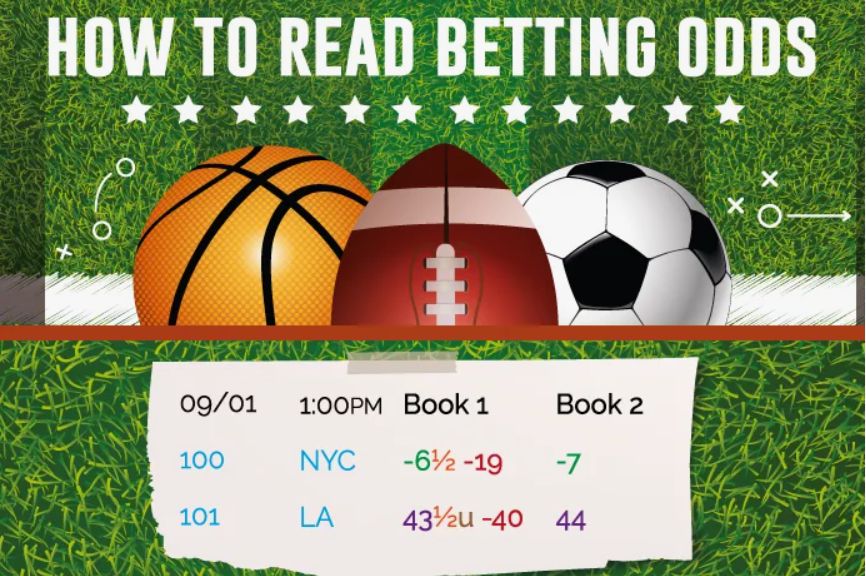Spotlight on Nigeria: Africa’s Sports Betting Powerhouse

Nigeria has emerged as the undisputed titan of Africa’s sports betting landscape, creating a marketplace that combines explosive growth, intense competition, and distinctive cultural characteristics that set it apart from other gambling jurisdictions worldwide. With an estimated 60 million Nigerians actively participating in sports betting activities and annual wagers exceeding $2 billion according to recent industry analyses, the scale of the country’s betting ecosystem has reached proportions that would have seemed unimaginable just a decade ago. This phenomenal expansion has been fueled by a perfect convergence of factors: Nigeria’s massive population of over 200 million citizens, a deep-rooted passion for sports (particularly European football), widespread smartphone adoption, and innovative payment solutions that have overcome traditional banking limitations. The Nigerian betting market has not simply grown—it has evolved into a sophisticated ecosystem with unique betting preferences, homegrown operators competing alongside international giants, and regulatory frameworks attempting to balance industry development with consumer protection. As sports betting increasingly weaves itself into the social and economic fabric of Africa’s most populous nation, understanding the distinctive characteristics of this market provides valuable insights into both Nigeria’s gambling culture and broader trends reshaping entertainment and technology adoption across the continent.
The Evolution of Sports Betting in Nigeria
The transformation of Nigeria’s sports betting landscape from underground operations to a regulated, technology-driven industry represents one of the most dramatic market evolutions in African business history. This journey, spanning several decades but accelerating dramatically in the past fifteen years, reflects broader changes in Nigerian society, technology adoption, and regulatory approaches to gambling activities that were once viewed with significant cultural skepticism.
Early Days and Traditional Betting Forms
Nigeria’s relationship with gambling predates its modern betting industry by centuries, with traditional forms of wagering deeply embedded in various cultural practices across different ethnic groups. Community-based gambling activities, often involving games of skill or cultural events, established fundamental betting concepts that would later transition into more formalized structures. The colonial era introduced Western gambling forms, though these remained limited primarily to the elite classes in urban centers. The post-independence period saw the gradual emergence of pools betting during the 1970s and 1980s, centered around European football predictions using paper coupons distributed through small shops in urban areas. This pools tradition, which required bettors to predict multiple match outcomes on standardized forms, established the cultural foundation for today’s sports betting enthusiasm. However, these operations remained relatively small-scale, with limited regulatory oversight and technological infrastructure, confining participation to urban centers and creating significant barriers to widespread adoption among the general population.
Digital Transformation and Market Expansion
The watershed moment for Nigerian sports betting arrived with the confluence of three transformative developments in the mid-2000s: widespread internet adoption, the explosion of European football popularity, and the entrance of the first regulated online betting operators. Companies like NairaBet, founded in 2009 by former Nigerian footballer Akin Alabi, pioneered locally-developed platforms specifically designed for Nigerian betting preferences and payment realities. This period of rapid innovation saw the industry transition from paper-based operations to digital platforms accessible initially through internet cafés and later via personal smartphones. The introduction of mobile betting applications around 2012-2014 eliminated geographical barriers to participation, enabling bettors from previously unreached areas to engage with these platforms. Simultaneously, payment innovations—particularly the integration of mobile money solutions and agency banking networks—addressed the critical challenge of financial transactions in a country where traditional banking penetration remained limited. These developments collectively transformed betting from an occasional urban activity into an accessible, everyday entertainment option for millions of Nigerians regardless of location or socioeconomic status.
Contemporary Competitive Landscape
Today’s Nigerian betting market has evolved into one of the most dynamic and competitive gambling environments globally, characterized by intense rivalry between domestic champions and international operators. The contemporary landscape features over 40 licensed betting companies operating across digital and retail channels, with market leaders like Bet9ja, BetKing, and 1xBet each claiming significant market share through distinctive competitive strategies. Local operators leverage their deep understanding of Nigerian consumer preferences and payment challenges, while international entrants bring sophisticated platform technologies and experience from mature gambling markets. This competitive intensity has generated remarkable innovation in product offerings, from virtual sports optimized for low-bandwidth connections to specialized betting markets aligned with Nigerian preferences. The retail betting shop model has evolved alongside digital platforms, with over 50,000 betting shops now operating nationwide according to industry estimates. These physical locations serve not merely as transaction points but as social hubs where bettors gather to watch matches, discuss options, and experience the communal aspect of sports betting that remains culturally significant despite increasing digital adoption.
Key Factors Driving Nigeria’s Betting Industry Growth
The extraordinary expansion of Nigeria’s betting industry results from a convergence of distinct factors that have collectively created ideal conditions for market growth. These drivers span demographic realities, technological developments, sporting passions, and economic circumstances that together explain the sector’s remarkable trajectory over the past decade.
Demographic Dividend and Youth Culture
Nigeria’s population dynamics represent perhaps the most fundamental driver of betting industry growth, with demographic patterns creating a massive potential customer base with characteristics conducive to betting adoption. The country’s estimated 200+ million population includes approximately 70% under age 30, creating an unprecedented youth bulge of tech-savvy consumers with strong interest in sports entertainment. Urban youth culture has increasingly normalized betting as a standard leisure activity and potential income source, with survey data indicating approximately 60% of urban males aged 18-40 regularly engage in sports betting. This demographic concentration has shaped operator strategies, with products, marketing approaches, and user interfaces specifically designed to appeal to young, male consumers. The social dimension proves particularly significant, as betting discussions have become embedded in youth social interactions, with wagering decisions, outcomes, and opportunities forming regular topics of conversation in both physical and digital spaces. These patterns create powerful network effects that drive continued adoption, as non-participating youth face social incentives to engage with betting activities to participate fully in peer group dynamics.
Telecommunications Revolution and Mobile Penetration
The technological transformation of Nigeria’s connectivity infrastructure has removed traditional barriers to betting participation, creating the foundation for industry expansion beyond major urban centers. Mobile phone penetration has reached approximately 85-90% of the adult population, with smartphone adoption growing rapidly from 12% in 2014 to over 40% in 2022 according to industry data. Critically, the expansion of 3G/4G coverage into previously underserved regions has enabled betting operators to reach customers throughout the country with increasingly data-efficient applications. Operators have adapted to this environment through significant investments in lightweight mobile platforms optimized for entry-level smartphones and intermittent connectivity conditions. USSD betting services, which enable participation through basic feature phones without internet access, have proven particularly important for reaching users in rural areas and lower socioeconomic segments. These technological adaptations have democratized access to betting services, transforming what was once an urban, middle-class activity into an entertainment option available to Nigerians across geographical and economic circumstances.
European Football Passion and Media Ecosystem
Nigeria’s extraordinary passion for European football, particularly the English Premier League, provides the essential content foundation driving betting engagement. Survey research indicates over 80% of sports betting activity focuses on football markets, with Premier League matches generating approximately 60% of total football betting volume. This concentration results from decades of media exposure that has created deep emotional connections between Nigerian fans and European clubs, with teams like Manchester United, Chelsea, Arsenal, and Barcelona commanding massive, passionate followings. The expansion of satellite television through providers like DStv, alongside newer streaming options, has dramatically increased access to live European football content, creating the essential precondition for in-play betting growth. Betting operators have systematically leveraged this football obsession through strategic partnerships with popular clubs, tournament sponsorships, and football-centered promotional activities that strengthen the association between match viewership and betting participation. The recent growth of dedicated sports betting television programs, sports news websites, and football-focused social media communities has created an integrated media ecosystem where betting information and opportunities form an increasingly central component of football consumption—a self-reinforcing cycle that continues driving market expansion.
Popular Betting Markets and Preferences Among Nigerian Bettors
The Nigerian betting market has developed distinctive characteristics that reflect specific cultural preferences, technological conditions, and economic realities. These unique betting patterns distinguish the Nigerian marketplace from other gambling jurisdictions and help explain the remarkable success of operators who effectively cater to these local preferences rather than simply importing standardized international betting products.
- Accumulator betting dominates the Nigerian market, with industry data showing approximately 75% of all wagers involve multi-selection bets combining four or more events, significantly higher than the 30-40% typical in European markets.
- Weekend betting volume demonstrates extreme concentration, with Saturday and Sunday activity representing approximately 65-70% of weekly wagering, creating significant operational challenges for platforms managing these peak loads.
- Micro-stake betting represents a distinctive feature of Nigerian wagering patterns, with a significant percentage of bets placed with stakes under ₦500 (approximately $1.20), allowing participation despite economic constraints.
- European football leagues generate overwhelming betting interest, with the English Premier League, Spanish La Liga, Italian Serie A, German Bundesliga and UEFA Champions League collectively accounting for over 80% of football betting volume.
- Live betting has experienced extraordinary growth, now representing approximately 60% of total betting volume compared to 35% five years ago, despite connectivity challenges that sometimes complicate real-time wagering experiences.
The distinct preference for prediction-based combination bets rather than single-match wagers reflects both cultural factors and economic realities in the Nigerian context. The popularity of accumulator betting stems partially from the transformative potential these wagers offer—small stakes can generate significant returns when multiple selections prove correct, creating the possibility of meaningful winnings even for bettors with limited bankrolls. This mathematical reality aligns with cultural perspectives that sometimes view betting through an opportunity lens rather than purely as entertainment. Research into betting motivations reveals that many Nigerian bettors consciously approach accumulator wagering as a potential supplementary income source during challenging economic periods, with government surveys indicating approximately 35% of regular bettors cite income generation among their primary motivations. This perspective helps explain the distinctive emotional investment many Nigerian bettors demonstrate in their selections, with the outcome carrying significance beyond mere recreational gambling.
Virtual sports betting has emerged as a uniquely significant segment in the Nigerian market, accounting for approximately 30-35% of total betting activity according to operator data—a percentage far exceeding that of most international markets. These computer-generated events, featuring simulated football, dog racing, and horse racing with results determined by random number generators, offer continuous betting opportunities unconstrained by real-world sports schedules. Their popularity stems from several factors specific to the Nigerian context: they provide 24/7 betting opportunities between live sporting events, operate effectively even in low-bandwidth environments, offer rapid resolution of wagers (typically every 3-5 minutes), and present simplified betting markets that reduce selection complexity. Leading operators like Bet9ja and BetKing have invested heavily in customizing virtual sports products specifically for Nigerian preferences, creating distinctive offerings that differ substantially from virtual products in European or Asian markets. This segment’s growth presents both opportunities and regulatory challenges, as the continuous, high-frequency nature of these products raises important responsible gambling considerations that Nigerian regulatory frameworks continue to address.
The Regulatory Framework and Licensing System
Nigeria’s approach to sports betting regulation reflects the complex governance realities of a federal system where regulatory responsibilities span multiple governmental levels. This evolving framework attempts to balance multiple objectives: enabling legitimate industry development, generating government revenue, protecting consumers, and addressing social concerns associated with gambling expansion. Understanding this regulatory environment provides essential context for analyzing both current market dynamics and future industry trajectories.
Federal and State Regulatory Structures
The Nigerian betting regulatory environment operates through a complex division of authority between federal and state governance structures, creating a multi-layered system that operators must navigate. At the federal level, the National Lottery Regulatory Commission (NLRC) established through the National Lottery Act of 2005 provides overarching governance for betting activities nationwide. Simultaneously, individual states maintain significant regulatory authority through their own gaming boards, most prominently the Lagos State Lotteries Board (LSLB), which regulates Africa’s largest state betting market. This dual structure creates situations where operators must obtain and maintain licenses at both federal and state levels, with compliance requirements that sometimes contain conflicting provisions. The system further complexifies through overlapping responsibilities between lottery and betting regulations, as the legal frameworks evolved during periods when clear distinctions between these activities were less defined. Recent governance developments have attempted to clarify these jurisdictional boundaries, though significant ambiguities remain regarding enforcement authority in cases of regulatory divergence. Industry stakeholders have repeatedly advocated for regulatory harmonization to reduce compliance burdens and create more consistent operational standards nationwide.
Licensing Requirements and Compliance Challenges
The licensing process for Nigerian betting operators involves substantial financial commitments, extensive documentation requirements, and ongoing compliance obligations designed to ensure operator suitability. At the federal level, sports betting licenses typically require initial fees exceeding ₦30 million (approximately $72,000), with additional bank guarantees and annual renewal fees creating significant barriers to market entry. State-level licensing imposes additional financial requirements, with Lagos State charging substantial application and operational fees based on company size and betting channel distribution. Beyond financial considerations, licensing processes involve rigorous background checks of company directors, technical evaluations of betting platforms, anti-money laundering protocols, and responsible gambling program assessments. Compliance challenges center around several areas: maintaining simultaneous good standing with multiple regulatory bodies, managing tax remittance across different governmental levels, implementing player verification systems in a country lacking centralized identity infrastructure, and adapting to frequently changing regulatory interpretations. These complexities have contributed to significant market concentration, as smaller operators often lack resources to navigate the regulatory environment, while larger companies develop specialized compliance departments focused specifically on maintaining regulatory relationships.
Responsible Gambling and Consumer Protection
Responsible gambling regulation represents an evolving component of Nigeria’s betting governance framework, with increased emphasis in recent years on consumer protection provisions. Current regulations mandate various protective measures: age verification processes to prevent underage gambling, self-exclusion programs allowing problem gamblers to restrict their access, maximum stake limitations on certain bet types, and mandatory responsible gambling information on all betting platforms. Implementation effectiveness varies significantly across operators, with larger companies typically maintaining more sophisticated protection systems compared to smaller market participants. Recent regulatory developments indicate increasing prioritization of consumer protection, with the NLRC introducing more stringent responsible gambling requirements in 2022, including mandatory staff training, enhanced self-limitation tools, and more prominent problem gambling resource information. The regulatory framework continues balancing industry growth objectives with harm minimization goals, though critics argue that enforcement capacity limitations and coordination challenges between regulatory bodies create significant gaps in consumer protection effectiveness. Industry self-regulation initiatives have emerged in response, with leading operators forming the Association of Nigerian Bookmakers to develop and promote consistent responsible gambling standards that exceed minimum regulatory requirements.
Economic Impact and Employment Creation
The rapid expansion of Nigeria’s betting industry has generated significant economic effects extending far beyond direct gambling activity. This sector has emerged as a notable contributor to Nigeria’s formal economy through various channels including tax generation, employment creation, and ancillary business development. Understanding these economic dimensions provides important context for evaluating the industry’s broader impact on Nigerian society.
Tax Revenue and Government Funding
The betting industry has developed into a substantial source of tax revenue across multiple governmental levels, though quantifying exact contributions remains challenging due to fragmented collection systems. Available data suggests the sector generates approximately ₦25-30 billion (about $60-72 million) annually in direct tax payments through various mechanisms: corporate income tax at the federal level, gaming taxes typically set at 2.5-5% of gross gaming revenue, PAYE tax from employee compensation, and various state-level licensing fees and special assessments. Lagos State has benefited particularly significantly, with betting-related revenues funding various public initiatives including education programs and healthcare facilities specifically attributed to gambling-derived funding. The tax contribution extends beyond direct gambling taxes to include significant value-added tax generation from associated advertising expenditures, with the betting sector ranking among Nigeria’s top five advertising spenders according to industry analyses. While these contributions remain modest relative to Nigeria’s oil-dominated revenue structure, they represent increasingly important diversification for government funding sources, especially at state levels where betting-derived revenue provides greater budget predictability compared to more volatile funding streams.
Direct and Indirect Employment Generation
The employment impact of Nigeria’s betting expansion manifests through multiple channels creating diverse job opportunities across skill levels and geographical areas. Direct employment by betting operators encompasses approximately 50,000 formal positions nationwide according to industry association data, spanning retail operations, call centers, marketing departments, software development, and corporate functions. Retail betting shops represent particularly significant employment generators, with typical outlets employing 3-5 staff members who handle customer transactions, provide betting assistance, maintain facilities, and manage cash operations. Beyond these direct positions, the agent network model pioneered by companies like Bet9ja has created entrepreneurial opportunities for an estimated 150,000 Nigerians who operate as commission-based betting agents, often combining these services with other small business activities to create sustainable livelihoods. Indirect employment effects extend further through supporting services like security provision for betting outlets, cleaning services, equipment maintenance, and specialized printing operations producing betting slips and promotional materials. The sector’s employment contribution holds particular significance in Nigeria’s challenging labor market context, where formal job creation struggles to keep pace with approximately 4-5 million young Nigerians entering the workforce annually.
Technology Ecosystem Development
The betting industry’s growth has catalyzed significant technology ecosystem development within Nigeria through both direct investment and knowledge transfer effects. Several leading operators including NairaBet and BetKing maintain substantial local technology development operations, employing Nigerian software engineers, data scientists, user experience designers, and cybersecurity specialists to develop and maintain their platforms. These technical operations have produced valuable spillover effects through knowledge dissemination as employees subsequently found their own technology ventures or join other sectors, bringing specialized skills in high-volume transaction processing, real-time data management, and secure payment solutions. The betting industry has also stimulated significant investment in server infrastructure and content delivery networks optimized for Nigerian connectivity conditions, with several operators establishing dedicated data centers within Nigeria rather than relying exclusively on international hosting. Additionally, specific technical challenges faced by betting operators—such as processing micropayments efficiently, managing intermittent connectivity, and developing fraud prevention systems for Nigerian contexts—have driven innovative solutions subsequently adapted for other industries including e-commerce, banking, and telecommunications. This technology ecosystem development represents a particularly valuable economic contribution beyond direct revenue generation, helping build Nigeria’s capacity in digital service development and technical human capital formation.
Looking Ahead: Trends Shaping Nigeria’s Betting Future
The evolution of Nigeria’s betting industry continues accelerating as technological innovations, regulatory developments, and shifting consumer preferences reshape market dynamics. Identifying key trends emerging in this landscape provides valuable foresight regarding both the industry’s future trajectory and broader implications for Nigerian business and society.
Mobile-First Innovation and Personalization
The next phase of Nigeria’s betting evolution will be characterized by increasingly sophisticated mobile experiences as operators shift from mobile-compatible to truly mobile-first product development. This transition involves fundamental redesign of betting journeys specifically for smartphone interaction rather than adapted desktop experiences, with simplified user interfaces, reduced data consumption, and streamlined transaction flows optimized for smaller screens and variable connectivity. Leading operators have begun implementing advanced personalization systems that leverage artificial intelligence to customize betting experiences based on individual preferences, behavioral patterns, and wagering history. These systems analyze factors including sport preferences, typical stake sizes, preferred bet types, and activity timing to generate tailored recommendations and customized interfaces. This personalization extends to promotional targeting, with operators moving beyond mass-market offers toward individualized incentives designed for specific customer segments or even individual high-value players. The competitive advantage increasingly belongs to operators who effectively balance sophisticated personalization with the streamlined interfaces necessary for Nigeria’s connectivity environment—avoiding feature bloat while still delivering tailored experiences that increase engagement and customer loyalty in an increasingly competitive marketplace.
Cryptocurrency Integration and Payment Evolution
Nigeria’s position as Africa’s leading cryptocurrency adoption market creates significant potential for blockchain technology to reshape betting payment infrastructures. Recent surveys indicate approximately 35% of urban Nigerian adults have used cryptocurrencies, creating a substantial potential user base for crypto-based betting solutions. Early cryptocurrency betting implementations focused primarily on Bitcoin, but newer integrations expand to include stablecoins like USDT that address volatility concerns while maintaining blockchain benefits including reduced transaction costs, faster withdrawal processing, and enhanced privacy. Payment evolution extends beyond cryptocurrency to include emerging fintech integrations utilizing the recently implemented Nigeria Inter-Bank Settlement System Instant Payment (NIP) infrastructure for real-time bank transfers, agency banking networks providing cash deposit/withdrawal options through over 300,000 agents nationwide, and specialized betting wallets that function as closed-loop payment ecosystems. These payment innovations hold particular significance in the Nigerian context where traditional banking penetration remains limited at approximately 40% of adults, making alternative financial infrastructure essential for continued market expansion. Regulatory responses to these developments continue evolving, with authorities attempting to balance innovation facilitation with necessary oversight to prevent money laundering or other financial crimes through betting payment channels.
Market Consolidation and International Expansion
Nigeria’s betting industry appears poised for significant consolidation as scale advantages become increasingly critical for competitive success in a maturing market. Current patterns show larger operators steadily gaining market share through superior marketing resources, more advanced technology platforms, and broader retail networks that smaller competitors struggle to match. This consolidation trend will likely accelerate through strategic acquisitions as international gambling conglomerates seek established entry points into the Nigerian market rather than building brands from scratch. Simultaneously, successful Nigerian operators have begun leveraging their domestic expertise to expand across other African markets, with companies like BetKing and Bet9ja establishing operations in Kenya, Ghana, and Ethiopia through both direct market entry and acquisition strategies. These expansion efforts typically involve exporting operational models proven successful in Nigeria’s challenging business environment while adapting specific product elements to local market preferences. This bidirectional international movement—both inward investment from global gambling groups and outward expansion by Nigerian champions—reflects the market’s growing sophistication and integration into global betting ecosystems. The Nigerian betting experience provides valuable expertise for operating in other emerging markets with similar characteristics: young populations, variable connectivity, complex payment environments, and strong sports enthusiasm, positioning successful Nigerian operators as potential pan-African or even global industry players in coming years.



